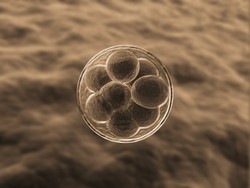The epigenetic landscape of cell development
One of the main control factors of DNA transcription regulation is epigenetic input that either enhances or represses target genes. To do this, enhancer elements make direct physical contact with their promoters. Both enhancers and promoters are characterised not only by a specific DNA sequence but also a chromatin signature. Modifications of core histones control the repression or modulation of the respective genes and have huge biological significance. The FAME (Functions of chromatin marks in regulation of gene expression) project investigated both enhancer and promoter sequences in the developing and adult mouse intestine as a key example of differentiation of cells from stem cells. Homeostasis of the small intestine epithelium demands rapid and continuous regeneration of specific cell types. These include absorptive enterocytes and secretory Paneth cells. The researchers generated genome-wide transcriptome and chromatin state maps from the embryonic intestinal epithelium for enterocytes and Paneth cells as well as embryonic intestinal epithelium and adult intestinal stem cells. The researchers identified and defined sets of genes that are co-regulated by a combination of histone modifications at each individual stage of the intestinal cells' developmental path. They also identified a large number of potential regulatory elements, including distal, proximal as well as intergenic enhancers. These were then defined as either specific or common for all cells from the endoderm. FAME research has determined what factors are necessary for adult stem cells to maintain their 'stemness'. Deciphering epigenetic mechanisms controlling homeostasis may lead to the development of therapies when an imbalance occurs – be it cancer-causing, inflammatory or metabolic in nature.
Keywords
Epigenetic, mouse intestine, enhancer elements, promoter, stem cells

